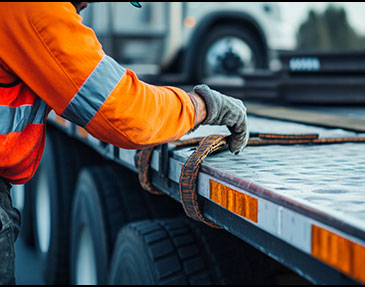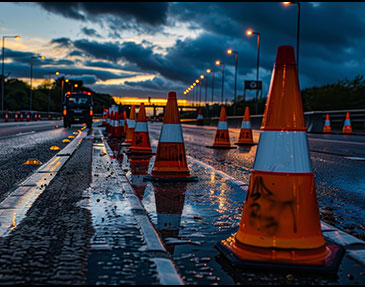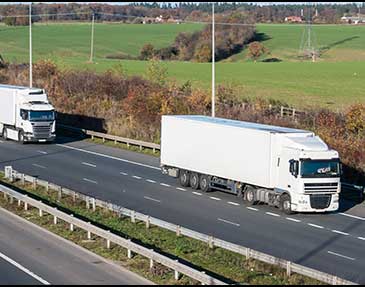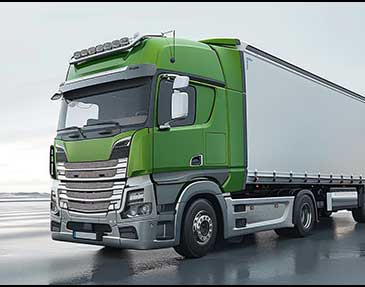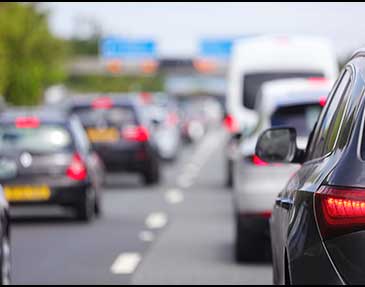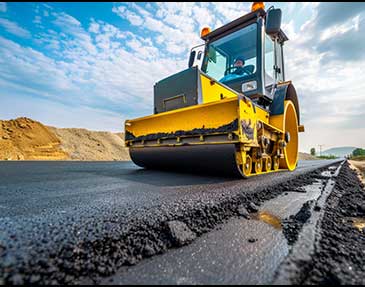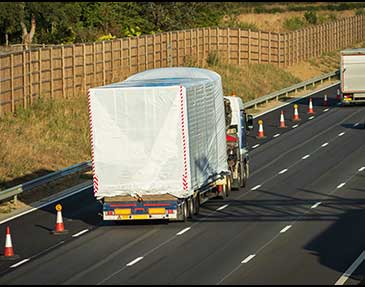Freight Research
www.eadt.co.uk/news/25092339.suffolk-lorry-theft-offences-rise-new-figures-show/
Freight and cargo crime offences more than doubled in Suffolk in recent years, new police figures have shown.
Following an exclusive interview with a transport expert on the issue of crimes involving lorries, this paper has now spoken to a national expert on the criminal gangs involved and how they are so efficient.
In Suffolk the number of freight crime offences rose from 56 in 2023 to 118 in 2024, according to figures from the National Vehicle Crime Intelligence Service, or NaVCIS.
Across the counties in the East of England in the last three months of 2024 it was estimated the cost of stolen cargo goods and damage to cargo vehicles was £2.8 million.
PC Mike Dawber, field intelligence officer for NaVCIS, described the gangs involved in freight theft as “seriously well organised”.
“We often get reports of offences in areas just outside of Felixstowe and we get the occasional offence reported to us at the Shell, at Orwell Bridge,” Mr Dawber said.
Mr Dawber explained how thieves target certain lorries: “They understand which haulage companies have got contracts to move certain goods, and they know the routes these companies take.”
He added these criminals know that drivers should not be on the road for long than four and a half hours without taking a break of at least 45 minutes.
“I believe that they’re traveling to certain routes and overnight parking locations such as motorway service stations to deliberately target certain goods and commodities”, Mr Dawber said.
The most likely way a lorry’s goods will be stolen is by thieves slashing the curtains of a target and simply removing the items into their own HGV.
However, Mr Dawber said another very common form of freight crime is trailer hook up thefts.
“They target unattended trailers left in yards on a weekend. Perpetrators will break into the yard, or get legitimate access to that yard, and hook up to preloaded trailers of goods”.
He added: “But from a policing perspective, there’s an awful lot of good work going on.
“Last year, we were notified or asked for assistance with 324 arrests just for lorry crime and cargo theft and on top of this we supported 48 policing operations.”
PC Terry Harvey of the Roads Policing Unit issued a plea to drivers last week.
He said: “Having goods taken from an HGV is hugely disruptive and expensive for the haulage company concerned.
“Criminals realise the goods stolen can be of a high value, so they will look to exploit any weaknesses in vehicle security, especially overnight.
“We continue to engage with haulage companies as part of our role to educate and inform them of the potential of criminals to steal goods from lorries.”
https://www.bbc.co.uk/news/articles/c2508n3ewy5o
Lorry drivers are calling for more secure truck stops across the UK to stop organised crime gangs from stealing cargo.
Last week the Road Haulage Association (RHA) called on the new government to create a specific freight crime offence, external and a national truck parking security standard to help tackle thefts.
In one incident this year, £1.1m worth of goods were stolen from a lorry parked in Banbury, Oxfordshire.
The government said it was working with a group whose vehicle crime specialists are sharing information with police forces across England and Wales, to “better tackle regional issues.”
“This is serious and organised crime”, a National Vehicle Crime Intelligence Service (NaVCIS) officer told the BBC.
The body is a police unit that helps forces fight vehicle crime, funded by the logistics industry.
The officer, who wanted to remain anonymous, explained that the gangs understand supply chains, surveillance and policing, and have “underground networks of handlers that’ll handle a vast quantity of cargo for serious sums of money”.
They often target motorway service stations and truck stops on major routes like the M1, M25, and M40.
They slash curtains or bolt crop trailer doors until they find a valuable load, according to the NaVCIS.
Thieves target popular consumer items like alcohol, tobacco, electricals, and clothing.
The loads are then divided and sold on online selling platforms and in wholesalers, backstreet cash and carries, car boot sales, and markets.
There is no precise figure for the number of thefts from lorries in the UK, however the NaVCIS said there was more than 5,000 incidents of lorry crime in 2023, or about 14 every day.
They said this equated to a £68m loss of goods, but industry experts think the real figure could be seven times higher.
Hauliers also said their lorries were being targeted when parked in “secure” truck stops.
Even when no cargo is stolen, attempted thefts are costing the industry.
Each curtain tear costs about £100 to repair, explained Rhys Hackling, who runs Bicester-based Direct Connect Logistics.
“If you’re carrying food or a similar product, once that tear happens the goods will be rejected,” he said.
Ultimately, it is consumers who pay. The RHA’s Ashton Cull said these crimes ripple through the supply chain and increase “the costs of everything”.
Although rare, an increasingly perilous way of stealing cargo has been on the rise in the UK, according to the NaVCIS.
Typically attempted on long, straight highways at night, the “rollover” theft sees criminals drive their cars directly behind a fast moving lorry, the driver often unaware they are being followed.
“Someone will climb out of the sunroof of the car that’s directly behind,” the NaVCIS officer explained.
“They’ll bounce down onto the bonnet, angle grind, undo the back doors of the trailer, and jump in on the move to steal cargo.”
There have been nine “rollover” thefts recorded in the UK in 2024 so far, up from seven in 2023.
The NaVCIS said while they are still rare there is potential for “death and serious injury”.
The threat of theft is causing “significant issues” to drivers’ “wellbeing and welfare”, according to the RHA’s Ashton Cull.
Darren Brooker, who runs Daz Tran International in Hythe, Kent, said one of his hauliers has “packed up driving completely” after he woke up to thieves targeting his trailer.
He added: “He’s a bag of nerves. We had to go and rescue him and in fact, he said, I don’t want to do this no more.”
Oxfordshire driver Joe Alves told the BBC he does not get a full night’s sleep, and that he has had his lorry slashed even when parked up with the doors open, to show there is no cargo inside.
With no specific crime reporting category for cargo theft, it is difficult to assess the police record on tackling lorry crime.
But Mr Alves said he felt “there’s no communication” from the police after incidents are reported.
“I don’t always get an easy ride, particularly from drivers and haulage companies”, admitted the NaVCIS Officer, “[but] there is an awful lot of good work going on nationally to combat this type of offending.”

